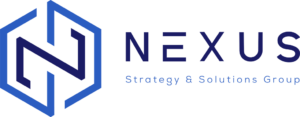The workforce is more diverse than ever in today’s globalized business environment. Companies that harness this diversity effectively thrive through enhanced innovation and broader market reach. However, managing cross-cultural teams presents unique challenges, from navigating communication barriers to aligning varied work ethics. This is where consultants play an indispensable role, facilitating the integration and management of these teams to optimize productivity and foster innovation.
Understanding Cross-cultural Dynamics
A cross-cultural team includes members from different nationalities, cultures, or ethnic groups, bringing diverse perspectives and practices. While this diversity can be a significant asset, it often comes with challenges like language barriers, cultural misunderstandings, and conflicting norms or expectations.
The Consultant’s Strategic Role
Consultants specializing in organizational development and intercultural management are pivotal in bridging these gaps. Here’s how they can make a critical difference:
Cultural Competency Training
Consultants design and implement training programs that enhance cultural awareness and sensitivity. These programs educate team members about different cultural backgrounds and communication styles, essential for fostering mutual respect and understanding.
Communication Strategies
Effective communication is the cornerstone of successful team management. Consultants develop strategies catering to multilingual environments, possibly incorporating translation services or training in simple English for workplaces with language barriers. They also promote clear, concise communication practices that transcend cultural boundaries.
Conflict Resolution
Cultural differences can lead to misunderstandings and conflicts. Consultants equip teams with conflict resolution tools tailored to address and resolve disputes respectfully and constructively, ensuring these differences do not undermine team cohesion.
Leveraging Diversity for Innovation
Diverse teams have the potential to be extraordinarily innovative and creative. Consultants help organizations harness this potential:
Idea Generation
By facilitating brainstorming sessions and encouraging the sharing of different viewpoints, consultants help teams break out of conventional thinking patterns, leading to more innovative solutions.
Global Insights
Team members from various parts of the world bring unique insights into local markets. Consultants help companies leverage these insights to tailor products and services to meet diverse consumer needs, enhancing global competitiveness.
Adaptability and Competitiveness
Consultants foster an environment where change is welcomed and effectively managed, enhancing the team’s adaptability to new challenges and maintaining competitiveness in rapidly changing markets.
Case Studies
Case Study 1: Multinational Corporation Success
In one instance, a multinational corporation faced significant challenges integrating its diverse R&D team. A consultant was brought in to facilitate cultural competency training and establish effective communication protocols. The result was a 30% increase in project completion rate and several breakthrough innovations that allowed the company to penetrate new Asian and European markets.
Case Study 2: Tech Startup Turnaround
A tech startup initially struggled with its multicultural team dynamics, experiencing frequent conflicts and stalled projects. After a consultant intervened with targeted team-building exercises and conflict-resolution training, the startup saw improved morale, reduced turnover, and a significant uptick in productivity and innovation.
Tools and Techniques for Consultants
Consultants use various tools and techniques to manage cross-cultural teams effectively:
- Cultural Assessment Tools: These help consultants evaluate the cultural dynamics within a team and identify potential friction points.
- Workshops and Retreats: These sessions are designed to build trust and foster relationships among team members from different backgrounds.
- Continuous Improvement Programs: Consultants establish programs encouraging ongoing learning about cultural differences and adaptation strategies.
The Future of Cross-cultural Team Management
As businesses continue to globalize, the role of consultants in managing cross-cultural teams will only grow. Emerging trends, such as virtual reality and AI-driven communication tools, are expected to enhance the effectiveness of cross-cultural teams further, making the consultant’s role even more pivotal.
Conclusion
Effective management of cross-cultural teams is crucial in today’s global business landscape. Consultants play a critical role in helping organizations leverage the full potential of their diverse workforces. They can transform these diverse groups into cohesive, innovative, and productive teams through strategic interventions and targeted training.
Call to Action
Is your organization ready to transform its cross-cultural teams into a powerhouse of innovation and efficiency? Contact us today to learn how our expert consulting services can help you achieve that. Schedule your consultation now and take the first step towards harnessing the true power of your diverse team.


